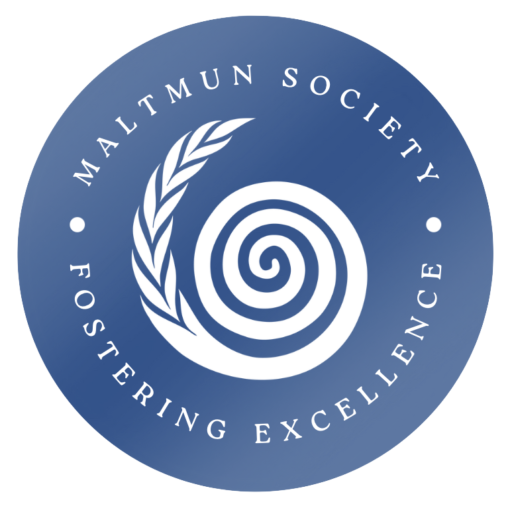This article was originally published in April 2021.
International relations theory and practice tend to be principally defined and shaped by the West, which looks back on its history and legacy with rose-tinted glasses. The West has a long-established tradition of assuming the moral high ground in its relationship with other countries, overlooking the fact that it has been responsible for countless transgressions, wrongdoings and atrocities throughout history. This is misleading at best and hypocritical at worst.
The EU, the US and other countries which make up “the West” – a term whose etymology subconsciously promotes an unnecessary division between itself and other regions – have always chastised and condemned members of the global community for moral affronts and crimes against humanity, while being quick to position themselves as champions of freedom, justice, and equality.
It is good to remember that when Thomas Jefferson stated that “Rightful liberty is unobstructed action according to our will within limits drawn around us by the equal rights of others,” he did so while owning 600 slaves. While Winston Churchill espoused that “All the greatest things are simple, and many can be expressed in a single word: freedom, justice, honour, duty, mercy, hope,” he also orchestrated a coup d’état in Iran in order to protect British interests there. Finally, when French president Charles de Gaulle claimed that “At the root of our civilisation, there is the freedom of each person of thought, of belief, of opinion, of work, of leisure,” he also sanctioned the torture of Algerians during the War of Independence.
Nor is this posturing limited to the past. Just this month, Joe Biden refused to sanction Saudi Arabian crown prince Mohammed bin Salman, despite UN and CIA reports confirming that he orchestrated the shockingly brutal murder of fellow countryman Jamal Khashoggi for criticising his regime. Germany insists on completing the Nord Stream 2 gas pipeline which connects with Russia, even though German authorities acknowledged that Alexei Navalny, a fierce critic of Russian president Vladimir Putin, was poisoned by a Novichok nerve agent – which are stockpiled by the Russian government. The EU may have just placed sanctions on China for its abuses in Xinjiang, but the latter is still the former’s largest trading partner, displacing the US just two months ago.
Non-Western countries are painfully aware of these moral inconsistencies, which is a reason why many states currently prefer doing business with China, who make no pesky “human rights” demands with their trade partners, and why the Chinese themselves like to remind the West of its past when criticised over their human rights practices. A recent example of this is from just last month, when China’s State Councillor (the country’s top diplomat) Yang Jiechi told US Secretary of State Anthony Blinken that China hopes the “United States will do better on human rights. The fact is that there are many problems with the US regarding human rights, which is admitted by the US itself.” This is a sentiment no doubt shared by other countries theWest has traditionally viewed as antagonistic, such as Russia, Iran, Venezuela, Turkey and North Korea.
Troublingly, the same patterns can be observed even in the academic domain. The reputable American news publication Foreign Policy published an article penned by nine prominent leaders in the field, criticising international relations literature for largely ignoring or glossing over the role of Western colonialism and racism, and disregarding or downplaying the roles that non-Western sources have played in international relations history. Agnès Callamard, UN special rapporteur and incoming Amnesty International secretary general described how the EU is reluctant to challenge “cosy” relations with foreign leaders who have breached human rights, and how the United Nations is wary about “bothering the powerful”.
The UN itself is in urgent need of reform. While not representative of the West, one would do well to remember it is predominantly funded by it, and is an organisation whose existence was set in motion by American president Franklin Roosevelt and the aforementioned Churchill. 2019 data illustrates that the US is far and away the biggest UN donor, contributing about 22% of the organisation’s total budget, with European countries pooling in a further 27.5%.
The Security Council, for example, is an arguably obsolete relic of the Second World War, yet still enjoys significant clout in global affairs. The fact that only five members are permanent, and the fact that these same members have access to powers that the others don’t – for example, veto power – is antithetical to equality and representation, which is what the UN is supposed to stand for. The UN openly declares its support for “self-determination”, but as an organisation that represents the interests of only the current existent nation-states, does it really? The mere reality that Taiwan – one of the best examples of modern vibrant Asian democracy – is neither a member of the UN nor its sub-organisations, chiefly because of pressure from China and the West’s acquiescence to this pressure, is proof of this.
The West has the opportunity to truly lead by example by acknowledging past misdeeds, make appropriate reparations to former colonies, and if it is to continue emphasising the importance of morality and human rights in its affairs – which it should – it needs to start consistently putting its money where its mouth is.
Written by: Christopher Spiteri
Christopher Spiteri holds a Master’s in international relations and works at the Ministry of Foreign and European Affairs and Trade. Opinions expressed are solely his own and do not express the views of the Ministry.
References:
- https://www.lexico.com/definition/western_world
- https://www.smithsonianmag.com/history/the-dark-side-of-thomas-jefferson-35976004/#:~:text=In%20his%20lifetime%20Jefferson%20owned,%2C%20in%201817%2C%20was%20140
- https://founders.archives.gov/documents/Jefferson/03-14-02-0191
- https://www.bbcamerica.com/blogs/50-%09churchill-%09quotes–49128#:~:text=%22To%20improve%20is%20to%20change,perfect%20is%20to%20change%20often.%22&text=%22The%20farther%20backward%20you%20can,you%20are%20likely%20to%20see.%22&text=%22The%20price%20of%20greatness%20is%20responsibility.%22&text=%22Men%20occasionally%20stumble%20over%20the,as%20if%20nothing%20ever%20happened.%22
- https://www.prospectmagazine.co.uk/magazine/the-last-warrior-behind-the-self-made-myth-of-charles-de-gaulle
- https://euobserver.com/foreign/126230
- http://evene.lefigaro.fr/citation/base-civilisation-liberte-chacun-pensee-croyances-opinions-trav-31452.php
- https://www.dw.com/en/germany-demands-russia-release-alexei-navalny/a-56404650
- https://www.diplomatie.gouv.fr/en/country-files/russia/news/article/joint-statement-by-the-foreign-ministers-of-france-and-germany-alexei-navalny
- https://www.bbc.com/news/world-europe-54010741
- https://www.reuters.com/article/us-eu-china-sanctions-idUSKBN2BE1AI
- https://www.bbc.com/news/business-56093378#:~:text=China%20is%20now%20the%20EU’s,overtaking%20the%20US%20in%202020
- https://www.theguardian.com/law/2021/mar/23/agnes-callamard-human-rights-un-europe-amnesty-international
- https://www.un.org/unispal/document/auto-insert-186956/
- https://foreignpolicy.com/2020/07/03/why-is-mainstream-international-relations-ir-blind-to-racism-colonialism/
- https://www.globaltimes.cn/content/1202752.shtml
- https://www.theguardian.com/world/2021/mar/19/us-china-talks-alaska-biden-blinken-sullivan-wang
- https://howmuch.net/articles/united-nations-budget-contributions-by-country-2019

